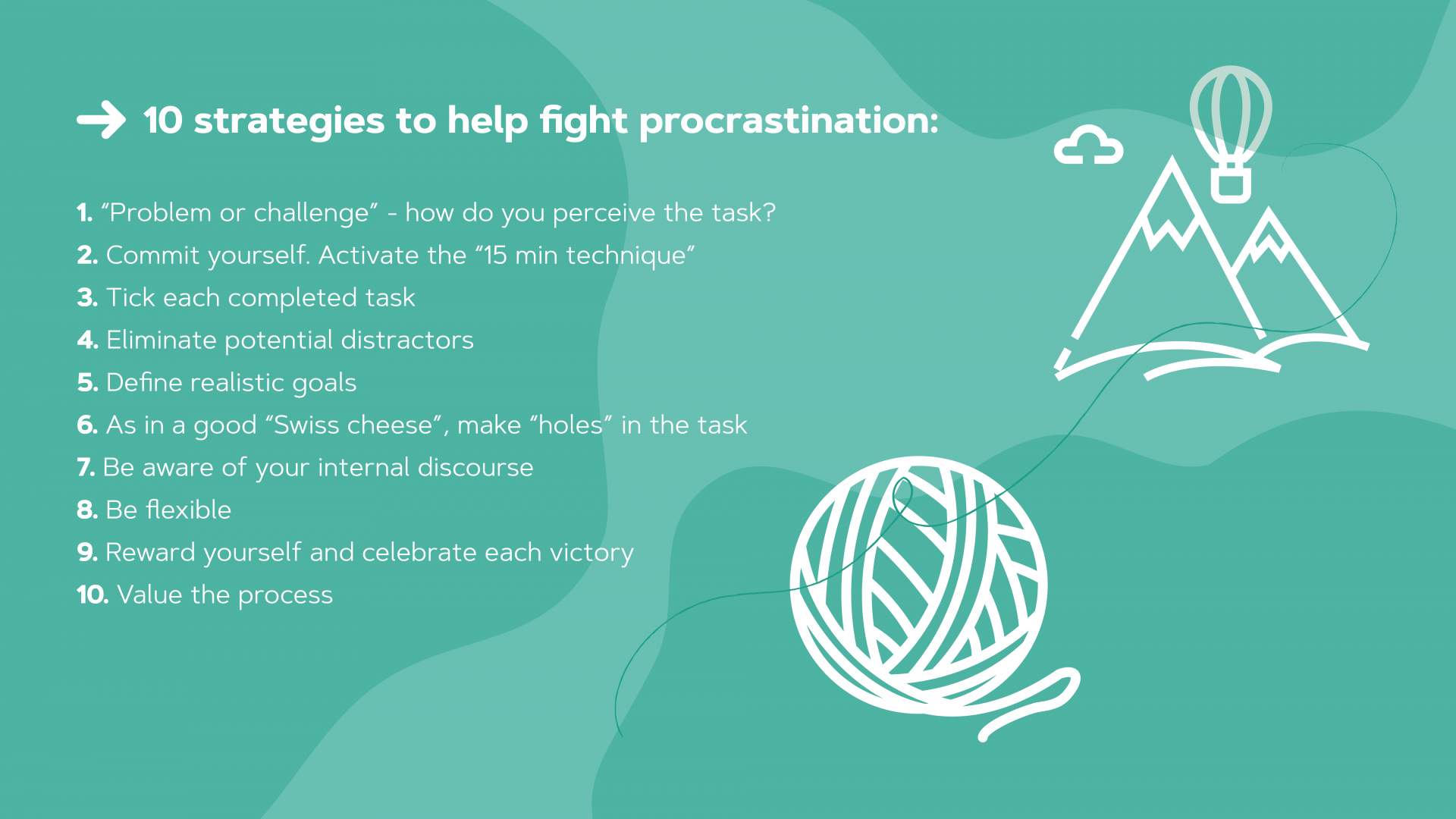
Let us imagine the following scenario:
You have been assigned a job, which you must complete within 1 month. It will require some readings and a few more steps.
Each time you try to start the task, your thoughts disperse. The task seems huge, almost like a mountain to climb, and you feel lost, you don’t know where to start. You sit down in front of your computer, and almost automatically feel prompted to open your email, log into Facebook, reply to a message you have received in the meantime, look for information for the project that you also have in your hands, get up to fetch one coffee to revitalize your energies, and look for the book that might help you with your current task... – Meanwhile, two hours have gone. You sit down again and looking at the task at hand, you say, "I haven't done anything yet!".
Have you ever felt in the middle of this entangled ball, when following every "later", "I will do it tomorrow", "in a little while...", "I am awaiting for motivation...", "I am waiting for inspiration", "I work better under pressure", the situation becomes even more entangled with more knots?

Don't be surprised. You are not alone!
All of us (some more than others, it is true) have already struggled with procrastination (postponing relevant obligations, reversing the order of task priorities), using different justifications to explain the phenomenon.
When you postpone/avoid the task, you may even feel some relief, but this tends to be temporary, resulting in a feeling of guilt “I should be doing this…”, “I should have already finished…”.
And so, the ball grows and becomes more entangled... and the task becomes huge.
In the medium/long term, procrastination can have consequences on one’s performance, because if the task is postponed, you will have to run against time, increasing the probability of unforeseen events happening and mistakes being made.
In addition to these consequences, we have growing feelings that become settled in. Increased anxiety and sadness, disappointment with what we did in contrast to what we thought we were capable of, and, consequently, with repercussions in the way we perceive our skills to face multiple challenges.
To be able to unravel procrastination it is necessary to find the tip of the ball. This means getting to the root of the problem, which implies self-awareness. In other words, it is essential to understand the real reasons that make us procrastinate.
Here are some key questions: "What is the role of procrastination in my life?", "What habits and thoughts contribute to procrastinating?"
The reasons for procrastination are several and more complex than what we might think, far beyond laziness or having or not having time management skills.
In many cases, procrastination is a self-protection strategy, a way of preventing our competences from being judged, especially in tasks that are relevant to us. So, in case error occurs, the responsibility will not be attributed to our personal characteristics, but to the obstacle (for example, not having enough time to do better). Fear is, therefore, at the basis of this habit, whether it is fear of failing, or even of being successful, and what it will entail.
After finding the end of the ball, it is important to clear the “knot” and continue moving on towards the goal (say, the top of the mountain). To help with this, here are 10 strategies:

Curious?
Find out more about these strategies… Here
Additional information about the topic
- Burka, J, Yuen, L. (2008). Procrastination: Why You Do It, What to Do About It Now. Da Capo Press.
- Ted Talk: The real reason you procrastinate
Carla Vale Lucas and Ana Rita Sobral
Student Support Office Team

